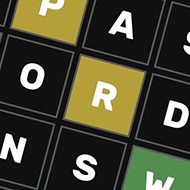Doppelpartment Free Game | Play Online
Doppelpartment is a psychological management game where your character shares an apartment with themselves—or rather, their doppelgänger. You’re constantly juggling tasks, moods, and behaviors to avoid detection, confusion, or worse: being replaced. It’s part simulation, part identity crisis.
One Room, Two Selves
The game takes place entirely in a shared living space. You alternate control between your main character and their double, switching perspectives and completing overlapping goals. The twist? Only one version is “real,” and both are trying to prove it. From doing laundry and cooking meals to writing a manifesto or tampering with the power box, every action creates a footprint. If the other you notices too many discrepancies, they may retaliate—by locking you out of the bedroom, deleting files, or contacting external observers.
Routine-Based Tension
Doppelpartment uses time-based mechanics that track movement, noise, and usage patterns. If both characters attempt to eat at the same time, an alarm goes off. If one version tries to overwrite the other’s tasks, memory errors appear. Over time, paranoia sets in, reflected through flickering lights, reversed controls, or passive-aggressive notes left around the house. Every task you perform alters not only the narrative, but also the physical game world.
Core Activities and Threat Mechanics
- Task Drift: Randomly alters simple tasks to trick the player into revealing inconsistencies.
- Voice Echo Events: Repeated commands may confuse the system and trigger resets.
- Mirror Checks: Show different reflections depending on stress and dominance levels.
Guidelines for Maintaining the Illusion
- Alternate rooms often—overstaying triggers suspicion responses.
- Don’t repeat tasks identically across characters—varying approach maintains realism.
- Monitor environmental cues closely—anything that changes subtly might not be your doing.
Doppelpartment creates a compelling sense of internal warfare within a confined space. The game rewards those who pay attention, adapt quickly, and embrace ambiguity. Whether you win or lose is unclear—what matters is who gets to stay in the apartment.








































































































































